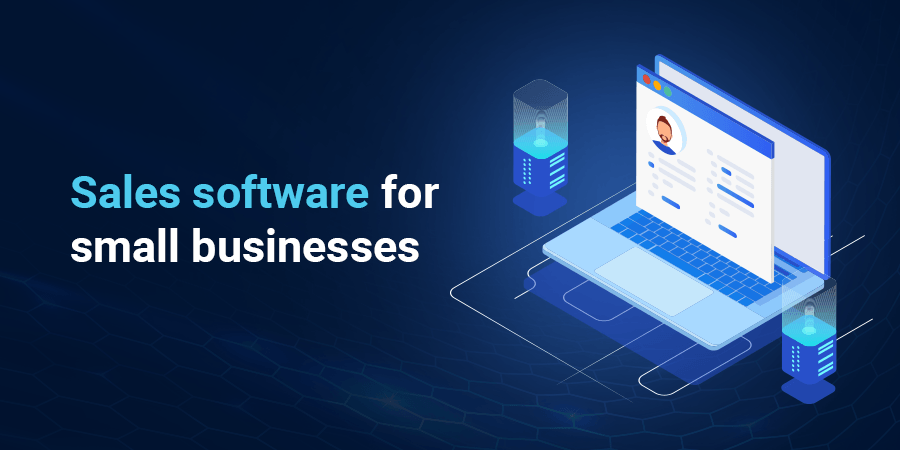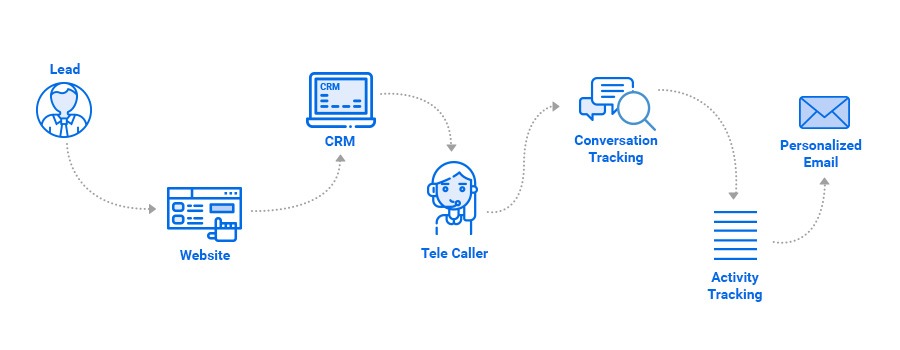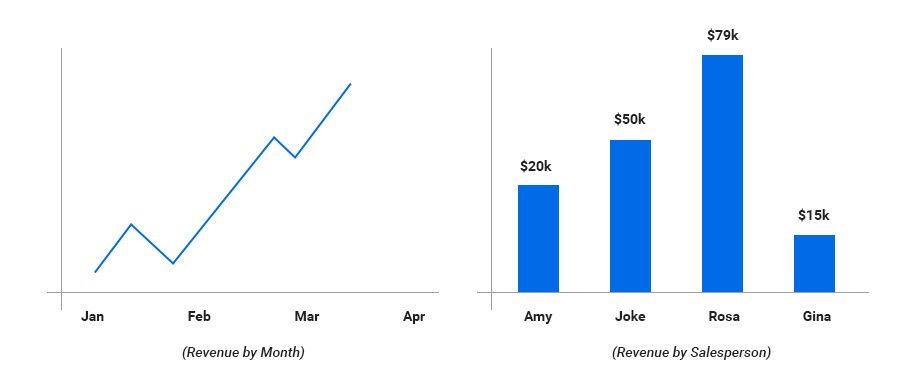While many people say they started a business because they have a passion for the market they work in, the truth is that they start a business to make money. While many businesses do provide valuable services and products, the bottom line is that they need to make a profit to survive.

In the simplest form, a customer gives money to the business to provide a service or product, and the amount of money given is slightly more than the cost to the business. This profit is used to pay employees, business bills, and so on.
When sales are going well, the business can look to expand. This can be increasing the range of products, moving to new premises, employing new staff, and so on. The problem is that many businesses think they are ready to expand at the wrong time – they don’t know how their business is performing and have no way of tracking it.
How Sales Software Benefits Small Businesses
The fortune teller in the sideshow at the fair seems to know a lot about you. She tells you things you thought only you knew about yourself and your situation, and she predicts what will happen to you in the future. Does she have a psychic ability, or is she perpetrating a scam?
Possibly, neither.
Many fortune tellers, psychic mediums, and people involved in similar practices become extremely skilled at “reading” people. They can pick up clues from how you dress, how you hold yourself, and the way you react when they say certain things or suggest certain ideas to you. By putting all these pieces together, they can build a picture of your life and can predict with a certain amount of accuracy how your life may unfold in the future.
Of course, what would really help is if you walked in with a list of events that have happened in your life and your aspirations for the future – but that would be cheating.

Sales software for small businesses gives you several advantages over businesses that don’t use any kind of management software. These other businesses are taking the “fortune teller” approach, waiting for someone to walk in off the street, and then trying to understand their life story as quickly as possible.
From the moment a potential customer hits your landing page, website, or social media – or even calls you on the phone – sales software allows you to track their progress through your sales process.
You can keep notes on the phone call, and for all digital interactions, the information will be automatically stored. You can see the products they are interested in, how they found the products in the first place, and gradually work out what their sticking points are.
Not only that, but the software will also interact with the potential customer for you. Once you capture their information (for example, name and email address), the software will be capable of sending messages to them suggesting alternative products and services. When it is determined how they respond to these messages, the follow-up messages can be fine-tuned to elicit a better and better response.
It’s less of being a fortune teller and more like being a detective!
All the information that is gathered is stored centrally, and so any member of your sales team can access it and know the full history of the lead if they need to speak to them.
Speaking of the sales team…
Evaluating the Sales Team Performance
Sales software will help you manage the performance of your sales team. They’ll have access to the information they need exactly when they need it, and you will be able to find out what you need to know from them with the same ease too.

Sales reports can be configured to be automatically sent to managers so you will receive regular updates on how different members of the team are performing. This data can be cross-referenced and segmented in a number of ways, including the geographic area the salesperson is targeting, the products they are selling, and their average sale price.
Other reports will show you the trends over time. Maybe one month had a spike in sales but the following month was back to the usual expected amount. Was that month an anomaly, was there an external factor that improved sales (eg Black Friday), was it down to a particular customer or did one sales team member have an exceptional month?
By reviewing the reports you’ll have a better understanding of how it all fits together as a whole. You won’t jump the gun and start expanding when you shouldn’t, but you’ll also see what areas are growing and what areas need more attention.
The only way to make progress with your business is to understand exactly where you right now, and build on your strengths.
Sales software will help you to see your current position whilst helping you to serve your customers (and your sales team) much more effectively.
Automation and Taking Action
As you have seen above, sales software can take on part of the sales process for you by automatically emailing customers. The software can also rate prospects and leads so you can identify who is the most suitable for chasing, and tasks can be scheduled for your team automatically. These tasks could be making a follow-up call, arranging a meeting, and so on.
This lets your team know exactly what is expected of them, and when it expected to happen. It relieves some of the pressure as actions are taken automatically, giving them that little bit of extra time needed to focus on the tasks that really matter.
You can even check on the physical location of your team members to make sure they have reached a meeting on time – something that is certain to make your customers happy.
Running a business as if you were a fortune teller is not an effective way to make sales, but learning everything you can about leads and following up at the right time certainly is – as is knowing which way your sales figures are headed and who the most effective member of your team is.








